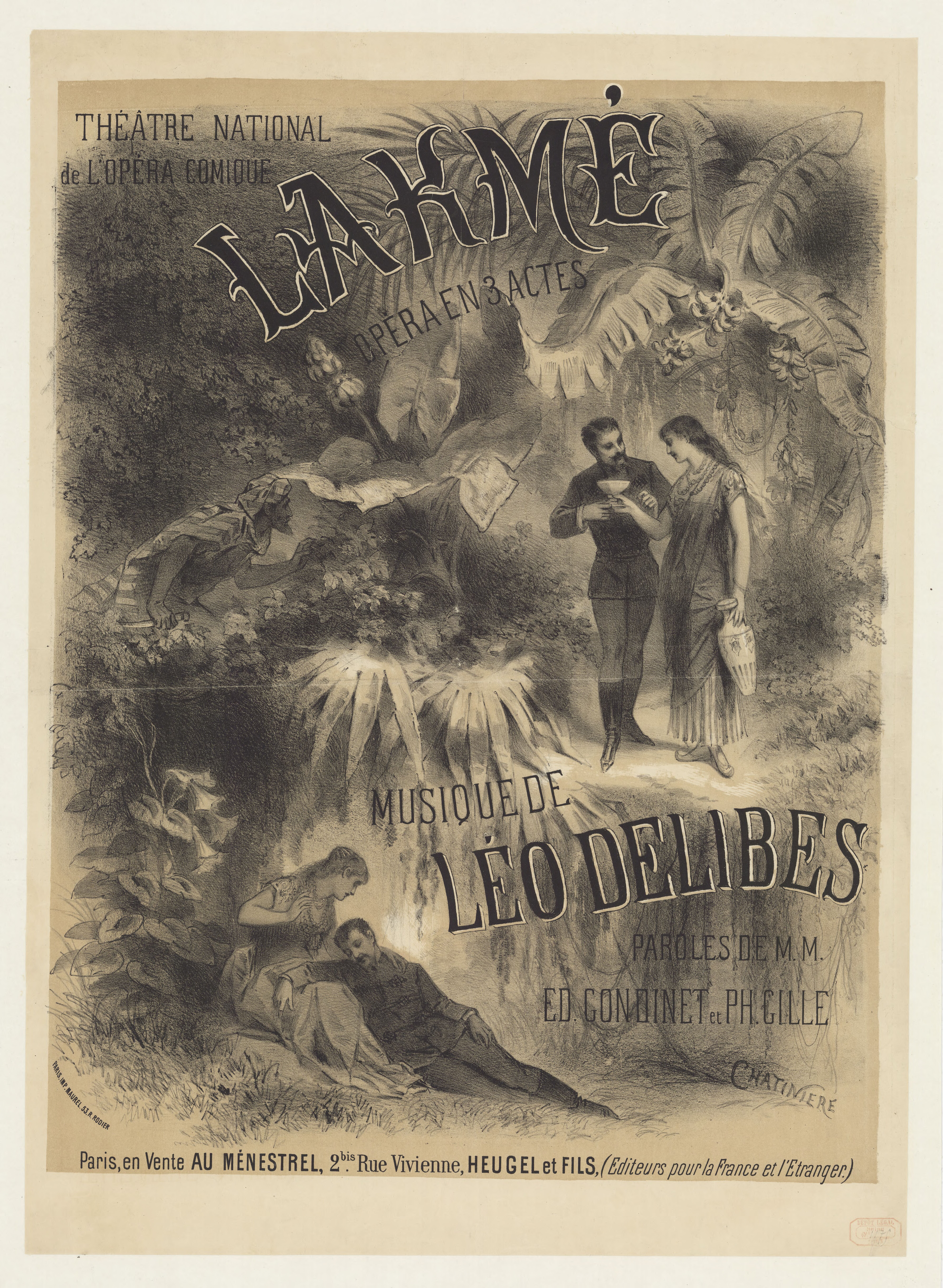Lakmé
 ''Lakmé'' is an opera in three acts by Léo Delibes to a French libretto by Edmond Gondinet and Philippe Gille.
''Lakmé'' is an opera in three acts by Léo Delibes to a French libretto by Edmond Gondinet and Philippe Gille.The score, written from 1881 to 1882, was first performed on 14 April 1883 by the Opéra-Comique at the (second) Salle Favart in Paris, with stage decorations designed by Auguste Alfred Rubé and Philippe Chaperon (act 1), Eugène Carpezat and (Joseph-) Antoine Lavastre (act 2), and Jean-Baptiste Lavastre (act 3). Set in British India in the mid-19th century, ''Lakmé'' is based on Théodore Pavie's story "Les babouches du Brahmane" (1849) and the novel '''' (1880) by Pierre Loti. Gondinet proposed it as a vehicle for the American soprano Marie van Zandt.
The opera includes the popular "Flower Duet" ("Sous le dôme épais") for a soprano and mezzo-soprano, performed in act 1 by Lakmé, the daughter of a Brahmin priest, and her servant Mallika. The name ''Lakmé'' is the French rendition of Sanskrit Lakshmi, the name of the Hindu Goddess of Wealth. The opera's most famous aria is the "Bell Song" ("L'Air des clochettes") in act 2.
''Lakmé'' combines many orientalist aspects that were popular at the time: an exotic location, similar to other French operas of the period, such as Bizet's ''Les pêcheurs de perles'' and Massenet's ''Le roi de Lahore'', a fanatical priest, mysterious Hindu rituals, and "the novelty of exotically colonial English people". Provided by Wikipedia
-
1Contributors: “...Les travaux décrits ont été en partie effectués dans le cadre du projet LAKME, financé par...”
Get access
Get access
Article in Journal/Newspaper